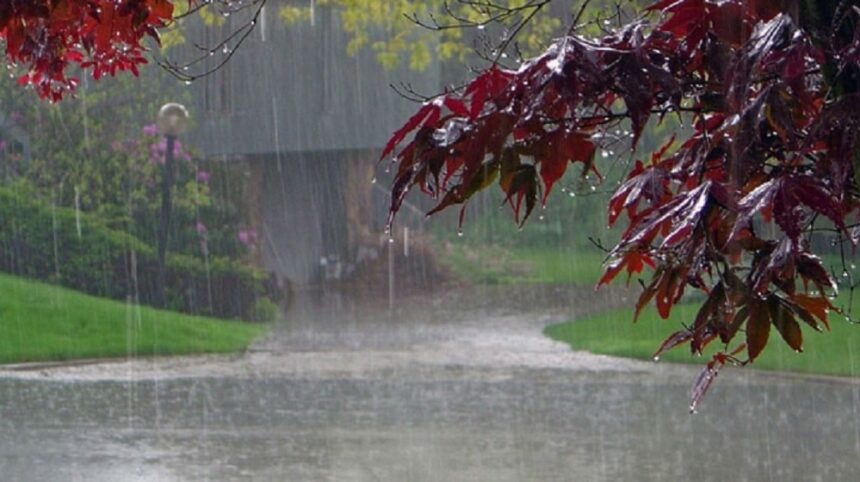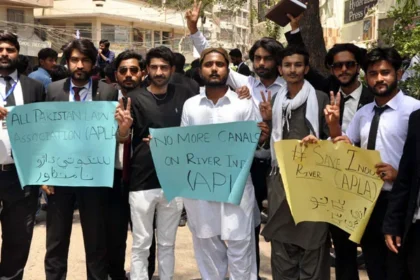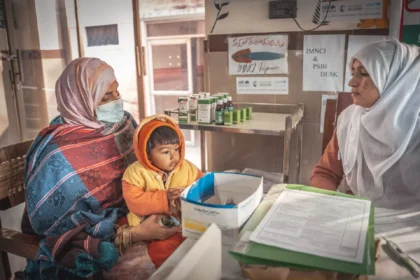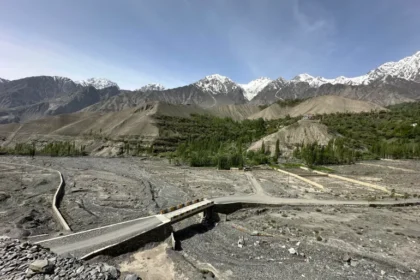Every monsoon season in Karachi — Pakistan’s biggest city and financial hub — turns into a slow-moving disaster that need not be inevitable. Streets vanish beneath water. Cars float helplessly down submerged roads. Children trudge to school knee-deep in muck. Residents lose power, property, and too often, their lives. For decades, people have debated whether Karachi’s urban flooding is a natural phenomenon or a result of human intervention.
Experts, residents, and city planners increasingly are of a single opinion about the latter. The city, with a population of almost 19 million, is being inundated not just by the rain but also by decades of unrestrained construction, poor governance, and decaying infrastructure. The flood, to a great extent, is man-made.
The Anatomy of a Collapse
Karachi receives the majority of its annual rainfall in a few weeks between July and September, according to the Pakistan Meteorological Department. Heavy rain is not unusual, but its impact has grown worse. A single spell of rain in August 2020 unleashed more than 230 millimetres of water over parts of the city in 12 hours. Such figures reveal why each downpour now feels less like weather and more like a humanitarian crisis. It claimed dozens of lives, shut down the stock exchange, and inundated whole localities.
“Karachi’s stormwater drainage system was never meant to take this sort of load,” Dr Noman Ahmed, an urban planner at NED University, said. “But the larger problem is that even what was there has been choked up over the years.”
The city’s natural drainage system — comprising over 40 nullahs (stormwater drains) and seasonal rivers such as the Lyari and Malir — has been systematically obstructed by construction and encroachments. Flyovers, business plazas, and even housing colonies now occupy the space where water used to flow freely.
Encroachments and Elite Capture
When authorities speak of ‘encroachment,’ they usually target katchi abadis. But the real story lies elsewhere: elite housing schemes and mega-projects that choke rivers far more than slum dwellers ever could. In recent years, authorities have demolished dozens of these homes on the grounds that they obstruct nullahs. Researchers argue that this is an incomplete, even false, narrative.
“Elite encroachments are much more damaging than katchi abadis,” said urban sociologist Arif Hasan. “Bahria Town, DHA, housing societies — these are the actual bottlenecks. They change the natural gradient of the land, fill up the wetlands, and push water towards katchi abadi localities.”
In Korangi and Orangi Town, locals talk of worse floods each year. Roads turn into rivers a few minutes after rain. None of these settlements receive municipal water or solid waste services — so garbage clogs whatever drains exist.
“You cannot drain water if your nullahs are clogged with plastic and trash,” said Orangi resident Rasheeda Bibi. “They clean them out right before Eid or elections — otherwise, we’re on our own.”
A Governance Vacuum
Karachi’s governmental structure is a complicated network. There are at least six major organisations dealing with drainage, sanitation, and road maintenance within the city — i.e., Karachi Metropolitan Corporation (KMC), Sindh Building Control Authority (SBCA),
Sindh Solid Waste Management Board (SSWMB), Cantonment Boards, and Pakistan Army-controlled DHA.
Coordination is near zero,” said Faisal Edhi of the Edhi Foundation. “Each one blames the other. Nobody takes responsibility until it is on fire — or under water.” Absence of a single agency to handle a task makes even a simple task such as cleaning drains ahead of monsoon season bureaucratically challenging. In 2022, an audit by the government revealed that more than 70 percent of Karachi’s storm drains were clogged or damaged structurally. Yet, little preventive work was accomplished prior to the rains arriving the next year.
Climate Change Faces Concrete
While governance failures are at the root, climate change is an undeniable intensifier. Global warming has altered precipitation patterns across South Asia. Pakistan’s monsoons, the World Bank forecasts, will become more erratic, with extended droughts followed by sudden, severe floods.
Urban sprawl has devastated Karachi’s climate resilience,” Dr Ahmed said. “Where are the mangroves? The green belts? The wetlands? We’ve replaced them with concrete.” This concrete — impermeable and poorly laid — turns roads into bathtubs during rains.
With no soil left to absorb the rain, water lingers on asphalt and concrete, eating away at buildings while suffocating the city below. The city’s sewerage system, already overburdened by industrial effluents, cannot cope.
“Even when it doesn’t flood,” Imran, a taxi driver operating close to Saddar, began, “the smell persists for weeks. It is as though it is a curse on living here.”
Disaster Impacts Unequally
Karachi’s flooding is not egalitarian. It does not hit all neighbourhoods equally, nor do all the citizens suffer equally. In high-end neighbourhoods like Clifton and DHA, power is restored within a matter of hours. Water tankers are dispatched promptly. Roads are cleared by private contractors or defence-related organisations.
In contrast, residents of Lyari, Baldia, and Malir have reported waiting for days for assistance — if it comes at all.
“The government always calls it a natural disaster,” says Nazia, a mother of four who resides close to Gujjar Nullah. “But when it rains, it comes from DHA to us. Their water, their trash — everything comes here.”
These disparities are not accidental. They are a symptom of a larger pattern of environmental injustice — where wealthier citizens can shield themselves from climate change, and poorer ones bear the exposure.
Broken Promises and Failed Solutions
Yielding to public pressure, the federal government and Sindh provincial government initiated several flood mitigation projects. They are:
- Widening and desilting of main nullahs
- Constructing new drains and culverts
- Employing early warning systems
- Resettling encroachment-affected families
Yet most such efforts are piecemeal or partial. In certain instances, the so-called “clean-up operations” have displaced working-class communities without proper compensation or resettlement.
“The residents were uprooted in the Gujjar Nullah clearance operation,” stated Ali Akbar, a researcher with the Urban Resource Centre. “A few were provided with tents; others were not given anything. In the meantime, high-rise structures on the very same nullah are not touched.”
This selective accountability not only helps to further consolidate public distrust but also does not tackle the root of urban flooding.
The Way Forward
It will require more than engineering fixes to solve Karachi’s flooding issue. It requires a fundamental transformation of how the city is planned, ruled, and appreciated.
City planners suggest the following:
- Preserve and restore natural watercourses and wetlands
- Place stringent restrictions on development within flood-prone zones ● Establish one metropolitan drainage authority
- Invest in green infrastructure (e.g., permeable pavements, rain gardens) ● Deliver climate justice by equitable resettlement policies.
“Karachi must be addressed as a living ecosystem, not a collection of roads and buildings,” Dr Ahmed explained. “Until that is done, we’re merely rearranging chairs on the Titanic.” A Crisis We Can No Longer Ignore. Karachi’s floods are not an act of fate, but of policy. What has been built can be unbuilt — but only if leaders stop treating disaster as routine. Climate change is no longer a threat of the future, but rather a pressing issue of the present. The issue is steeped in decades of corruption, inequality, and poor management. However, this crisis is not inevitable. It’s a product of particular policies, choices, and neglect. And that also means it can be undone — if there is political will, popular pressure, and a commitment to environmental justice. As one resident close to Manzoor Colony said, “We’re not asking for miracles. We just want functional drains, roads that won’t wash us away, and leaders who remain present and accountable.














